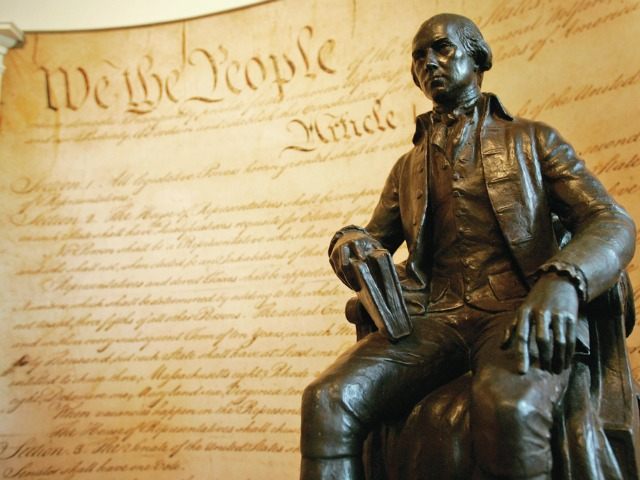On October 17, 1788, founding father James Madison wrote a letter to Thomas Jefferson in which he explained his support for a Bill of Rights as way to protect “essential rights” from the whims of the “majority.”
Madison made clear that his greatest concern, relating to such rights, would be “not from acts of Government contrary to the sense of its Constituents, but from acts in which the Government is the mere instrument of the major number of the constituents.”
We see this today in the way the gun control lobby claims this poll or that survey proves a majority support new gun control measures. They are literally trying to persuade those in Government to further constrain or eliminate the “essential rights” protected by the 2nd Amendment based on the alleged opinion of “the major number of constituents.”
Yet Madison wrote to Jefferson to say one of the central reasons for the Bill of Rights was to deny this ability to Government–to remove interference with “essential rights” from their purview. He admitted there were “many” who thought the addition of a Bill of Rights “unnecessary,” but these could not foresee a Government run by a “powerful & interested party” desirous to limit or quash certain rights.
Madison explained that Jefferson feared a top-down tyranny–which was a real option–but in so doing, Madison contended that the Jefferson missed the other threat, which was a move from the bottom-up in which a majority of constituents would rally behind one party for the sake of reducing or banning the exercise of certain “essential rights.” Left unchecked, Madison warned that such a party, empowered by a such a constituency, would wreak havoc on the rights of the people.
Here are Madison’s exact words:
This is a truth of great importance, but not yet sufficiently attended to: and is probably more strongly impressed on my mind by facts, and reflections suggested by them, than on yours which has contemplated abuses of power issuing from a very different quarter. Wherever there is an interest and power to do wrong, wrong will generally be done, and not less readily by a powerful & interested party than by a powerful and interested prince.
Follow AWR Hawkins on Twitter @AWRHawkins. Reach him directly at awrhawkins@breitbart.com.

COMMENTS
Please let us know if you're having issues with commenting.